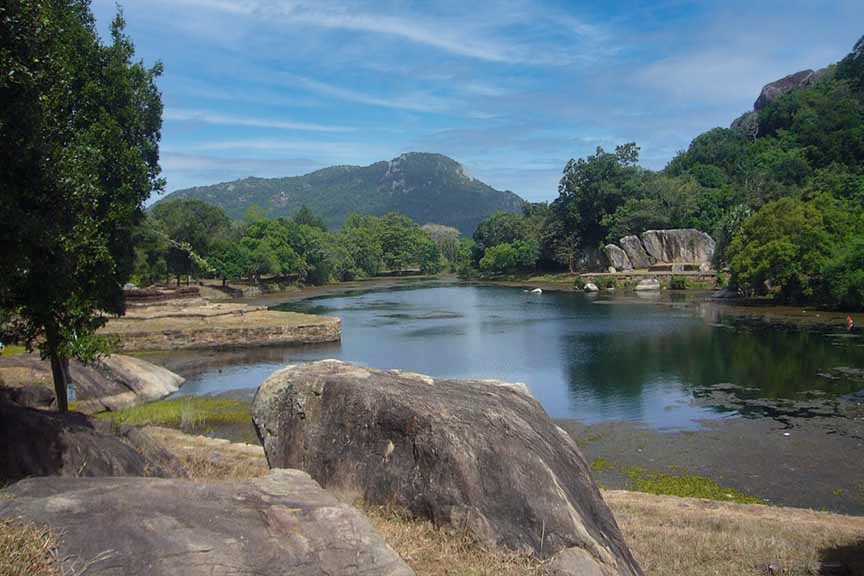
Kalu Diya Pokuna, meaning “Black Water Pond,” is an ancient archaeological site located in the central highlands of Sri Lanka, near the town of Dambulla. This site holds historical and cultural significance, offering insights into ancient Sri Lankan civilization and religious practices.
The main feature of Kalu Diya Pokuna is its twin ponds, which are rectangular-shaped water tanks carved out of solid rock. These ponds are interconnected and believed to have served as part of a monastery complex dating back to the Anuradhapura period (3rd century BCE to 10th century CE). The name “Black Water Pond” likely originates from the dark color of the water in these ancient tanks, which are now surrounded by serene forested areas.
The site also includes remnants of brick walls, pavements, and other architectural features that suggest the presence of a once-thriving monastery. Scholars believe that Kalu Diya Pokuna was not only a place for monks to bathe and collect water but also served as a center for meditation and religious rituals.
Visiting Kalu Diya Pokuna provides an opportunity to explore Sri Lanka’s ancient history and architectural heritage. The tranquil ambiance and natural surroundings make it a peaceful retreat, ideal for quiet contemplation and photography. The site is relatively less crowded compared to other historical sites in Sri Lanka, allowing visitors to appreciate its historical and cultural significance in a serene environment.
Kalu Diya Pokuna is accessible via a short hike through a forested trail, adding to the sense of adventure and discovery. As with many archaeological sites in Sri Lanka, it is advisable to visit with a guide or obtain information beforehand to fully appreciate the historical context and significance of Kalu Diya Pokuna.
